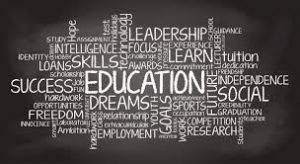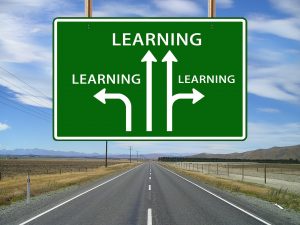This is a guest post by Ola (@m_careca5) and was first published on my2kobos.

Professor Benedicta Egbo is of the opinion that the numerous challenges facing the Nigerian state can’t be divorced from the acute decline in the quality of the educational system. The rotten state of the public school in the country can be attributed to a host of socio-political, economic and cultural issues – by extension I imply that the people with our different beliefs, social and cultural outlook, economic stamina as well as the revolving door of governments in the past years have all contributed somewhat to the gradual decay in the right education of our country.
First, the inconsistency in the educational policies from the federal and state governments have not in any way advanced the course of education progressively in last two decades. Budgets for Education and the effective administration at the primary, secondary and tertiary levels have not been given priority at all; more so the 26% budgetary allocation to education as advised by UNESCO is barely considered. For instance, in 2013, 8,77 percent of the federal government budget was allocated to education. This rose marginally to 9.04 percent in 2014 and again, 11.29 percent in 2015. However, it came down to 7.98 percent in 2016 and 6.14 percent in 2017.
Teachers, students and well-meaning stakeholders have been campaigning and bringing awareness to how education is grossly underfunded across all levels of governance in Nigeria. And on some rare occasions when a government ‘glances’ in the direction of education, the policies and directives neither make complete sense nor appear durable enough to stand the test of time. For example, it was reported that
the Katsina State Universal Basic Education Board (SUBEB) has directed primary school teachers and all head teachers in the state to withdraw their children from private schools for enrolment in public schools***
Now, you may see this as a step in the right direction to revamp the standard and professional investment in public school, but a close digest of the import makes it clear that this directive applies to teachers! What about the top civil servants, the state’s members of the executive council (including the governor) whose children are either in private schools or in schools elsewhere overseas? This lends credence to my initial position about policies that are usually unwholesome and not durable enough for sustainable implementation. Such garbage directives which do not show any seriousness and genuineness of government administrations towards improving the standard of education are abound across the nation today.
Second, the national education curriculum is static to say the least. It is not inspiring, lacks academic rigour and robust educational content. In fact, it is not fit for purpose given the present Nigerian socio-economic reality and development expectations. The recently revised 9-Year Basic Education Curriculum (September 2014) attempts to introduce initiatives in some select areas that provides better content, learning experience and development of skills but this as far as we have seen has only remained on paper. No direct action plan to implement these initiatives across public schools nationwide. The tools of teaching and learning approaches are not in-tune with the modern age. The teaching practice is not robust and student-centred enough. The broad needs of the country should inform the curriculum and structure of academic calendar in tertiary institutions. For instance, the mandatory 4-year structure for obtaining an Undergraduate degree (Bachelor of Science/Art or Higher National Diploma) is not feasible anymore. Some courses in Humanities and Social Sciences can actually be completed in three years (or even two and half years in some cases).
In addition, a lot of course contents need wholesome review to inject some enterprising, practical discourse and viable research procedure in degree programmes in line with contemporary higher institutions across the globe. Most public universities barely meet the academic standards of accreditation that should attest to their progressive rankings and in turn the suitability of the graduates produced in the labour market. Little wonder, most employers of labour do not find some graduates from some schools in Nigeria adequate enough for employment. No doubt, garbage education policies and ‘shitty’ administration begets dustbin education as we see today.
Third, adequate investment in educational infrastructure is almost non-existent. Facilities are in a sorry state – lack of conducive classrooms, no classroom teaching aids, libraries are mostly without books and if they do have some books, they are usually three decades-old editions. The academic environment is not better with some walls half broken, roofless or partial roofed buildings, research facilities are mostly outdated, and this does cripple academic research initiatives. Part of the decay in the educational system also boils down to under-remuneration of the teaching staff as well. The big cancer of corruption has not spared this sector of government either, as news of funds embezzlement by education administrators often filters through with no commensurate punishment or accountability.
The general state of public schools is despicable, without: standards and motivation of academic staff towards the delivery of excellent service and proper investment in the education of students.
Fourth, the persistent rot in the education system and downward slide in standards over the years has seen a huge brain-drain within the educational sector and the nation in general. Parents who have the means to educate their children overseas have not hesitated to marshal their financial resources to get quality education. Some others, like my parents, have resorted to private educational institutions within the country. Arguably, every financially capable family and those in positions of authority have boycotted public education institutions. This has caused not everyone to feel the effect of the poor standard of public education in the country; everyone except those without the financial means and capability to change the educational prospects of their children. Thus, millions of low income Nigerians, with the dream of educating their children, sends them to these inadequate educational institutions in the absence of a viable alternative.
While some don’t even have access to education at all. Recent UNESCO data reveals a high rate of out-of-school children of primary school age in at least 19 countries; with at least over 10 million children reportedly denied the right to education in Nigeria. Young minds systematically deprived an opportunity of education, social development and shot at a better life.
The teeming population seeking education bears the brunt of these educational inadequacies. They get half-baked education, with low value added learning experience, in academic institutions that lack the basics required for purposeful and meaningful education to take place and flourish. How do we begin to tackle these mammoth problems plaguing the nation? To get back on track, the sincerity of government in raising educational standards is a very important first step out of this mess. Then, we need a review of education policy that will be integrated across board from local government to state and federal levels. Each State Universal Basic Education Board (SUBEB) requires representatives from all stakeholders within the public, private and community sphere to partake in the formulation of adequate educational policy.
Proper funding and exhibition of prudence in education management is vital to the sustenance of set goals and implementation of viable initiatives to advance education in the country. For instance, Kaduna State witnessed an increase of 400,000 pupils just after one session of operating school feeding. After running the programme for 36 weeks, the Kaduna State Government suspended it, blaming the federal government for failing to meet its own part of the bargain, which is to provide part of the funds for the programme.
Classroom teaching and learning procedures should be re-assessed for a bespoke service delivery with proven contemporary classroom dynamics. Education diversification programmes to promote vocational training, school-to-work schemes (for those with no interest in further education) should be adopted.
The government needs to encourage local businesses and companies to partner with schools at secondary and tertiary levels. This will come in the form of internship opportunities, research funding by companies, job offers for top graduates, and graduates with demonstrable potentials in specific academic fields. This will go a long way in stimulating genuine interest in education from students and teachers’ perspectives.
A practicable policy on education which mandates senior public officials (and political office holders alike) to put their children in public schools will help towards adequate investment and administration of public education affairs. This will further strengthen government and people’s commitment to making public schools work, effectively and productively, yet again.
The standards of education in the 60s-70s with the Awolowo-era all-inclusive free education needs to be attained again and surpassed given how far the world has come in education advancement (and deployment of technology). The government is duty bound to formulate policies that caters for all citizenry, bar none, and provides ease of access to qualitative education with the best of standards.
In the words of Professor Egbo, for
Nigeria to make any meaningful progress, the nation’s education system must not only be inclusive and forward-looking, it must also strive towards remaining relevant, especially within the context of a globalised 21st world.
Hence, the Nigerian government and its citizens need to change their attitude towards education and in how it educates the youths who stand to become leaders in a not-too-distant future. The future of the nation, of any country for that matter, depends on progressive policy and relevant standard of education.
*Ajayi, S. Ademola (1984) “The Development of Free Education in Western Nigeria, 1952-1966: An Historical Analysis”. Unpublished MA Dissertation, Department of History, University of Ibadan, Ibadan, Nigeria
** “Decline in quality education responsible for Nigeria’s challenges”, Daily Trust, August 2015
*** “Katsina orders withdrawal of teacher’s children from private schools”, Today, August 2015
Part of this article has been edited by Abdulghaniy Kayode Otukogbe. This is in order to reflect the some of the recent developments in the Nigerian education sector.




